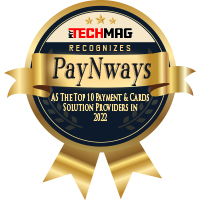Employee business travel expenses can cost businesses a lot of money. While they are difficult to control, knowing how to manage them can lead to many professional and financial benefits. With 2021 nearing its end, it’s time to start afresh, identify inefficiencies, and figure out better ways to manage your employee travel expenses.
Clear Communication is the key
Efficient management of employee travel expenses is impossible if you have no idea how employees spend money in the field. Due to this lack of visibility and transparency, finance teams make mistakes, miss receipts, even conduct frauds.
Therefore, it is crucial to create a clear, transparent travel policy for employees that communicates everything in a clear and easy-to-understand manner. Hand out your employees a copy of the policy and conduct a series of meetings to help them understand all the points in the policy. Make sure you effectively communicate your travel policy and your employees clearly understand it.
Leverage technology to make things easier
Several apps and software are available to enable easy and efficient employee travel expense management. From booking to expense tracking to instant receipt submission, several features for expense management are allowed in such apps.
For example, the Expensify app allows receipts to be scanned, which are then coded, reported, and automatically submitted for approval. You can even feed your company’s policy in the system to help it decide which expenses can be automatically approved without management’s approval.
Another application called Fudget lists the expenses and keeps track of the budget. Similarly, several other apps help your employees track their spending to meet the designated goals.
Streamline processes using a unified software
To manage and allocate T&E budgets more efficiently, leaders need insights on where the money is being spent and where there is a scope for savings. Finance teams want to reduce the amount of time they spend on tedious, manual processes, and employees need a way to track the progress of their reports easily. All these challenges can be addressed if there is a unified software platform to automate the above processes.
Encourage employees to use business apps on their laptops
Amidst your busy schedule, it’s easy to lose receipts. So encourage employees to digitally capture every receipt and upload it to the cloud immediately. With today’s cloud-based collaboration and productivity platforms, employees can store documents in the cloud and share them easily with others. The easier it is for them to manage the receipts, the more compliant they are to send their receipts regularly.
Reward and Reinforce
Encouraging good practices and incentivizing employees not to overspend is very important to make money-saving a habit. Incentivize employees under travel incentive programs. This will encourage them to spend less company money. There are a few approaches you can take to incentivize your employees who save funds on business trips:
Cashback on the money saved
For this, you can first estimate the average budget for a given trip. Then you can suggest your employees ways to come under that budget, like booking in advance. Once they come back, you can calculate the amount saved and then keep the 50% of the money saved for your business and give the rest to the employee as a cash reward. Google uses the same policy, where they split the unspent budget from each trip with the worker.
Upgrades or reward points for future travel
Under this scheme, you can reward any employee that comes under budget for their business trip with credits or reward points that they can use for upgrades on future travel. This will motivate your employees to save today so they can enjoy a more luxurious trip tomorrow.
Gamify it
Turn it into a game of travel expenses, wherein the employee who saves the most on their trip wins a prize or reward and also advances to the next stage of the game. Gamification encourages camaraderie and good-natured competition bringing together the company and employees as they work toward a common goal.
Conduct Regular Audits
Travel expense report fraud can be the gateway for several issues. A well-executed audit of travel expenses can avert fraud and save you a lot of money. An audit will cover costs incurred by employees, such as airfare, accommodation, food, coffee, and more during their business travel. The receipts submitted by the employees will be analyzed before they are approved and reimbursed. A well-performed audit will help you identify what’s hurting your bottom line and review the effectiveness of your current policies and processes.
Have faster reimbursement processes
There’s nothing worse than struggling to submit a report and then waiting months after submitting the information to get reimbursed. Particularly if the employees have to pay out of their own pockets, it can lead to frustration on the worker’s part, impacting morale and productivity. With faster and more streamlined expense management processes, the approval and reimbursement process can be made quicker and more efficient.
When the expense approval and reimbursement process gets completed quickly and smoothly, it helps keep employee morale high and motivates them to execute their jobs efficiently.
Final words
Business travel is a way to increase your company’s exposure, expand your network, and create lasting business relationships, but managing travel expenses can be a pure struggle if not executed properly. These tips can make your job easier and ensure increased employee satisfaction and savings.








